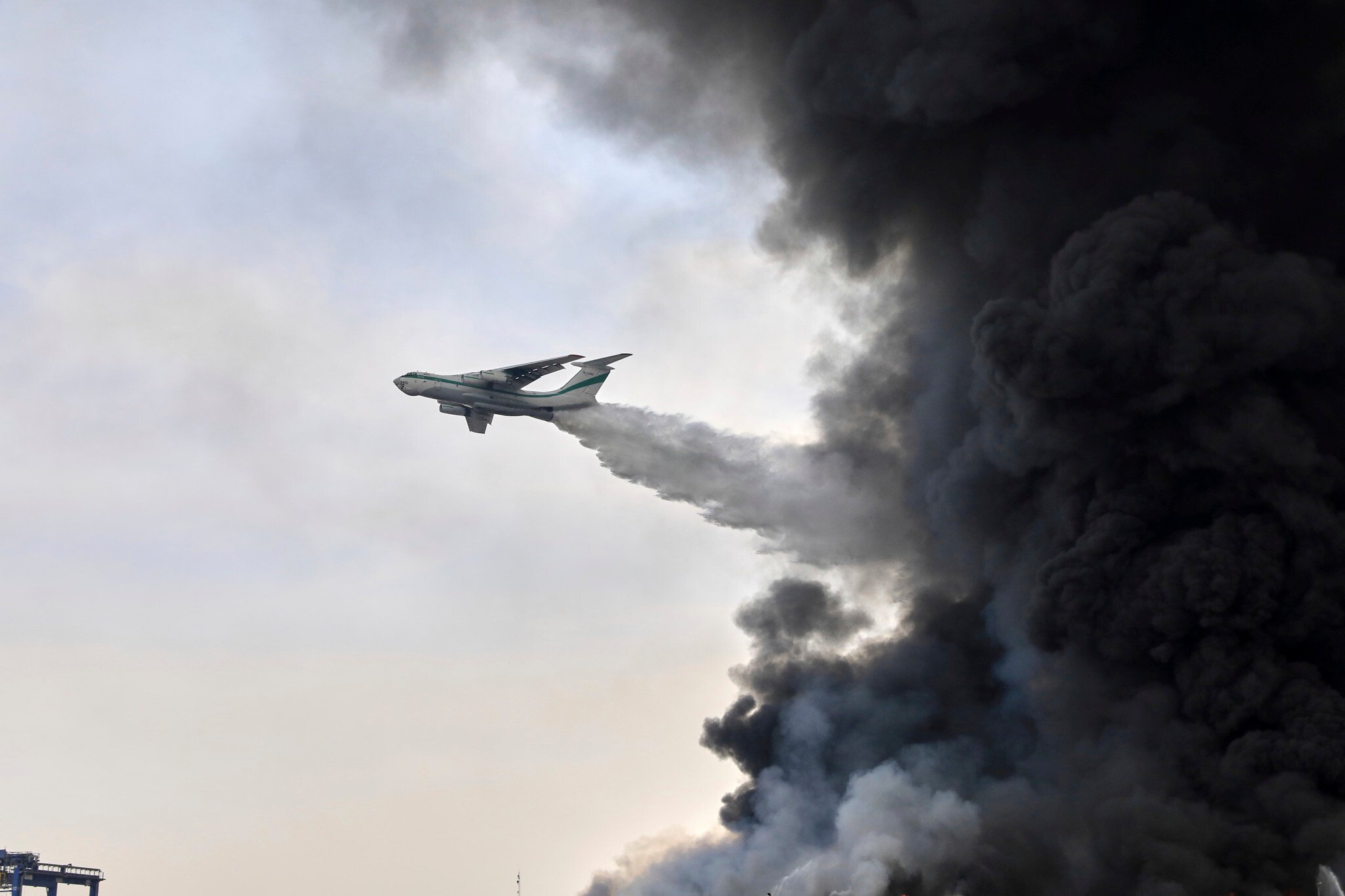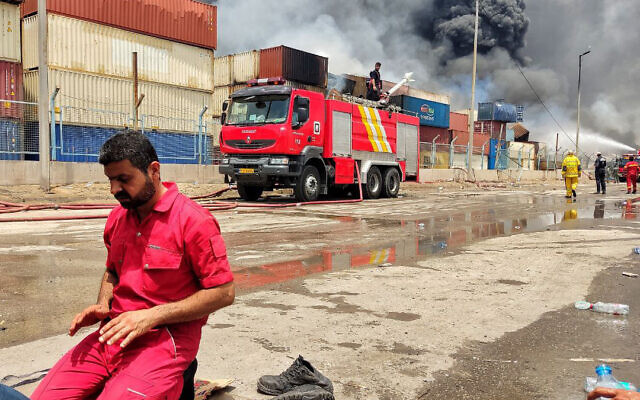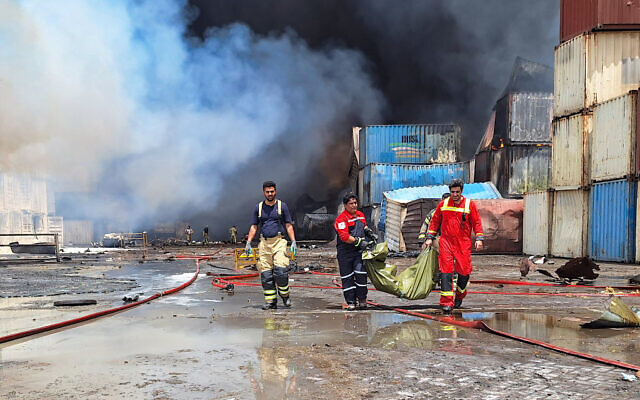



Iran’s Interior Minister Eskandar Momeni said Monday that a deadly explosion at the country’s largest commercial port two days ago was caused by “negligence” and failure to comply with safety measures, as state television, citing local officials, said the death toll has risen to 46.
“Some culprits have been identified and summoned… There were shortcomings, including noncompliance with safety precautions and negligence in terms of passive defense,” Momeni told state TV, adding that the materials should have been dispersed.
The fire still burned at the site, some two days after the initial explosion Saturday, just as Iran began a third round of negotiations with the United States over its rapidly advancing nuclear program. Over 1,000 people suffered injuries in the blast.
Bandar Abbas Mayor Mehdni Noubani told the semiofficial ISNA news agency on Monday that about 90% of the fire has been extinguished.
Private security firm Ambrey has said that the port received missile fuel chemical in March. It was part of a shipment of ammonium perchlorate from China by two vessels to Iran, first reported in January by the Financial Times.
The chemical used to make solid propellant for rockets was going to be used to replenish Iran’s missile stocks, which had been depleted by its direct attacks on Israel, amid the war begun by the Hamas terror group’s October 7, 2023, attack on the Jewish state from Gaza.
The Iranian military denied receiving the chemical shipment.
The New York Times, however, quoted an individual with ties to Iran’s Islamic Revolutionary Guards Corps, speaking on condition of anonymity, who said that sodium perchlorate, a precursor for ammonium perchlorate, had exploded.
Social media footage of the explosion saw reddish-hued smoke rising from the fire just before the detonation. That suggests a chemical compound being involved in the blast, like in the 2020 Beirut port explosion.
That explosion, caused by the ignition of hundreds of tons of highly explosive ammonium nitrate, killed more than 200 people and injured more than 6,000 others.
Late Sunday, Iran’s semiofficial ILNA news agency quoted Saeed Jafari, the CEO of marine services company working at the port, as saying there were false statements about the cargo that detonated, which he called “very dangerous.”
“The incident happened following a false statement about the dangerous goods and delivering it without documents and tags,” Jafari said.
Another report by the semiofficial ISNA news agency claimed the cargo that caused the blast was not reported to customs authorities as well.
Only high-level authorities in Iran, such as its paramilitary Revolutionary Guard, could circumvent normal procedures at the port.
Iranian Parliament Speaker Mohammed Bagher Ghalibaf told ISNA that authorities are probing whether the incident was caused by negligence or deliberately, and that the findings would be shared with the public
Ali Khezrian, a member of the Iranian parliament’s National Security Committee, on Monday rejected claims of foreign involvement in the blast, saying, “No evidence has been presented so far to suggest foreign actors were involved.”
“Deflecting blame under current circumstances will only distract public attention from those truly responsible for this disaster,” the lawmaker added, in remarks quoted by London-based Iran International citing Iranian media.
His comments came after an Iranian parliament member on Sunday claimed that Israel was responsible for the blast, saying that explosive devices were planted in the shipping containers that caused it.
“Israel was involved in the explosion,” MP Mohammad Siraj told the Rokna news agency. “It was not accidental. Clear evidence points to Israeli involvement.”
Siraj did not provide evidence to back up his claim. An Israeli official was quoted by Hebrew media Saturday as saying Israel had no part in the blast at the port.


